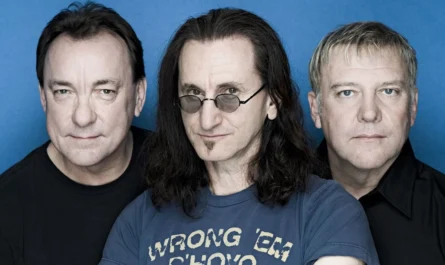From the depths of musical obscurity to the packed-out dancefloors of northern England, the northern soul scene was built upon a foundation of uncovering long-forgotten, impossibly rare soul singles from the other side of the Atlantic and introducing those sounds to a new generation of sweaty, amphetamine-fueled soulies.
Emerging into the dancehalls, nightclubs and social clubs of the late 1960s and early 1970s, northern soul had its roots in the mod subculture, and its penchant for niche (or ‘specialist’) American soul and jazz records. However, the DJs of the northern soul age took those niche sounds to entirely new heights. All of a sudden, DJs from places like Manchester, Stoke, Blackpool, and Wigan were essentially in competition with each other, with everyone trying to uncover increasingly obscure soul singles.
Secrecy was a key element of being a northern soul DJ, and those enigmatic figures stood behind the turntables at the Twisted Wheel, The Torch or, some years later, Wigan Casino often went to great lengths to throw other budding young disc jockeys off the scent. For instance, ‘cover-ups’ became commonplace within the scene, where DJs would cover up the name of an artist and song title to prevent other vinyl junkies from seeking out their own copies. Even today, some DJs still guard their defining tracks with their lives – and even Shazam can’t help you there.
On the flip side of that (pun fully intended), as certain DJs amassed a reputation within the scene, their tracks of choice became integral, much-beloved pillars of the northern soul scene. Tracks like Tobi Legend’s ‘Time Will Pass You By’ or even the scene’s defining track ‘Do I Love You (Indeed I Do)’ by Frank Wilson first entered the circuit as virtually unheard singles, but quickly became life-affirming anthems for soulies across the scene.
What’s more, as word of this bizarre new scene blossoming in the north of England began to spread, the record labels who issued many of those iconic northern soul tracks back in the 1960s began to get wind of some potential revenue. After all, if there’s thousands of soulies chasing the same obscenely rare records, reissuing said records would be a no-brainer for any enterprising record label, and many did just that.

As northern soul grew in popularity, more and more of the scene’s defining singles started to be reissued, and many of them ended up breaking into the mainstream pop charts. One of the very first was Gene Chandler’s ‘Nothing Can Stop Me’, originally released on Constellation Records in 1965, but reissued by Soul City – the shop and label reportedly responsible for coining the term ‘northern soul’ in the first place – three years later, in 1968. The original release might have been a flop, but its reissue reached a commendable 41 in the UK singles chart that year.
Northern soul reissues reached their peak in the early to mid-1970s, though, with Motown Records particularly adept at capitalising on the success of the scene. After all, Berry Gordy had bought up a lot of the labels that northern soul fans were obsessed with, including the likes of Ric-Tic and Golden World Records, so reissuing tracks like The San Remo Golden Strings’ ‘Festival Time’, R Dean Taylor’s ‘There’s A Ghost In My House’, or Frankie Valli’s ‘The Night’, was something of an inevitably.
All of the above tracks entered the pop charts as a result, the highest-charting entry being ‘There’s A Ghost In My House’, reaching number three in May 1974.
Multiple other northern soul classics entered the charts around the same time, with Chuck Wood’s ‘Seven Days Too Long’ and the Dean Parrish classic ‘I’m On My Way’ being two notable examples, but the only number-one single ever garnered from that deluge of reissues came from the unlikely source of The Tams and their 1964 single ‘Hey Girl Don’t Bother Me’, which topped the charts for three weeks in 1971, only displaced by Rod Stewart’s ‘Maggie May’.
Although the fact that this collection of reissues became mainstream pop hits exists in defiance of northern soul’s original mantra of obscurity, their success did reflect just how popular and widespread the northern soul scene had become by the mid-1970s. And after all, even the most puritan of soulies cannot deny the footstomping brilliance of a hit like ‘Seven Days Too Long’.





